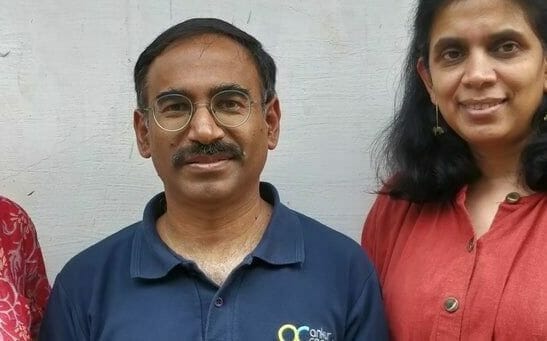Ankur Capital — a Mumbai-based impact investment firm with a strong emphasis on Indian agri-food tech — has announced a first close on $33 million for its Ankur Capital Fund II (ACF II). Investors at the firm say they expect to reach a target close of $50 million for ACF II later this year.
ACF-II has reached its first close thanks to participation from CDC Group, the UK’s development finance institution. Existing LPs from Ankur’s first fund have also set aside capital for Ankur, like The Dutch Good Growth Fund and SIDBI, which is investing out of its fund of funds startup program.
The first 14
Ankur Capital was founded in 2014 by Ritu Verma and ex-COO of Zee e-learning Rema Subramanian.
“We saw the innovations and new technologies that were happening around us,” recalls Verma in an emailed note to AFN describing how both her and Subramanian saw “the opportunity it presented to change key sectors like agtech.” The first fund (ACF I) has deployed investments into 14 companies, and most touch on agri-foodtech and healthcare. Nestled in the portfolio is the cloud-based pay-as-you-go platform Cropin, alongside coldchain solutions company TESSOL. (Also there is String Bio, which provides a new way of using methane, a waste gas, to manufacture value-added products like single-cell proteins for animal nutrition.)
Ankur launched its second fund in early 2019 — shortly before hiring Krishnan Neelakantan, ex-head of CLSA India Research, as a partner. According to a statement sent to AFN by the company, the second fund will continue the first’s focus on “frontier technologies that unlock markets for the next billion.” It will continue “to leverage its expertise and knowledge in the agritech, food, vernacular and health space but will also expand into sectors such as fintech and edtech.” Company investments will range from $500,000 to $5 million, the team says, with a plan to invest in six to eight companies this year.
“The VC space is evolving in India and we see a lot more interest in broad-ranging sectors compared to what happened five years back,” says Verma. She describes India’s VC landscape as now “very active,” though food and ag, she says, is still “a much smaller portion of the pie.”
On her time spent fundraising in this ecosystem, Verma shows a fair bit of modesty. “We were lucky with our fundraising,” she writes. “We had LP’s from our previous fund that were happy to come back and were very supportive. That helped pull in other folks. Fundraising still takes a lot of effort and thick skin! Cold fundraising, though, is difficult and referrals are what worked best.”
Digital supply chains don’t need to cut out middlemen
For Verma, digitalization is a theme that offers clear opportunities in 2020. “In India and other small farm holding regions, agriculture has had very little supply chain innovations and is riddled with inefficiencies. The digitization of these chains and what they can do for the future of our food is exciting,” she said.
Equally, she is confident that smallholder farming regions can secure a tech-driven future that does not have to mean consolidation into large holdings. “Small farms have an advantage of being “gardens” and can be tended to produce the variety, quality, and quantity to impact how we eat. So to us, digitization offers the advantage of communicating. optimizing and transforming archaic supply chains without having to follow the typical path of large scale farming, single varietal farming.”
Where she is skeptical is on the overreaching claims of cutting out intermediaries. “From a small farm region context, we often hear how startups are ‘getting rid of the middleman.’ Aggregation is critical and someone has to do it,” she says. “We see many of these companies going back to using middlemen albeit they now have a sexier title!”
Another trap for the agritech startups operating in the region, she notes, is a failure to either work with entrenched systems or find a viable way around them.“Agriculture and food supply are tough markets and farmers and supply chain actors have been around for a while. It is a price-sensitive market so figuring out your product market and value proposition is supercritical. A lot of agri-startups just scratch the surface and struggle with adoption.”
Future themes
Looking to the future, Verma sees three themes. “India today worries about food quality, nutrition, and climate change. By 2050 we will have a much cleaner supply chain both from a consumer ask and regulatory point of view. We are low on the protein curve and we will see an acceleration of protein consumption, however, plant-based proteins will be what will work in this market – we already have a lot of that, albeit from a different perspective.”
By 2050, she added, “we will move away from water-guzzling crops out of necessity and technology would be breeding ‘resistant’ crops to deal with the vagaries.” In the same vein, she also sees optimism in another trend: women in agtech. “There are “not enough women in VC which everyone knows,” she says, “but I am optimistic there are more women coming in and that should change the statistics.”
Women in agri-food companies in India, she cautions, “are close to nonexistent which I don’t understand. My advice is to work hard and find supporters and support systems to do what you want. Finding a mentor that can help you through this is very critical.”
Finally, Verma seems to believe the kitchen will have a harder time in the future — “we will cook less,” she predicts, “and place more online food orders!”





